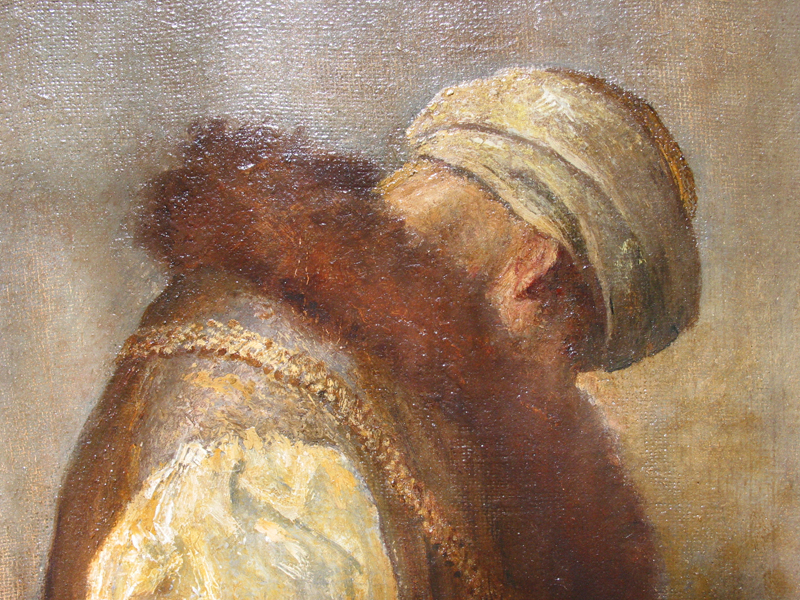
For He Had Great Possessions
George Frederick Watts, 1894
My dear friends,
Mark 10:17-31 teaches us invaluable lessons on attachment, expectations of reward, and the importance of love, compassion, and wisdom.
Firstly, let us understand the perils of attachment to worldly goods, as depicted in verses 17 to 27. A man comes to Jesus, asking him what he must do to attain eternal life. Jesus replies that he must sell all his possessions and give to the poor, a suggestion that the man finds extremely hard to accept, and goes away grieving.
We often become so engrossed in our material possessions that they start owning us, rather than us owning them. Such attachment forms a hindrance to our spiritual growth, a thick veil that obscures our vision of the ultimate reality. It leads us into the endless cycle of desire and suffering.
Jesus, in his infinite wisdom, shares, "It is easier for a camel to go through the eye of a needle than for someone who is rich to enter the kingdom of God." This metaphor beautifully encapsulates how our attachments can become insurmountable obstacles to spiritual development. Letting go of attachments is vital to progress on the path.
The next lesson, presented in verses 28 to 31, discusses the expectation of rewards. The disciples, like many of us, question what they will receive for following the spiritual path. They've given up their homes, their families, their entire lives - what will be their reward? This human tendency to anticipate rewards, even as noble as expecting eternal life, can act as a hindrance to spiritual growth.
In Buddhism, we understand this through the concept of the Eight Worldly Concerns – hope for pleasure, praise, fame, and gain, and fear of their opposites. Such expectations shift our focus from the journey to the destination, from the practice to the reward, leading to spiritual materialism. True spiritual practice must be pursued with a pure heart and an open mind, without expectations.
Lastly, let us look at the antidote to these hindrances: the development of love, compassion, and wisdom. All spiritual traditions stress these virtues. They are the foundational pillars of a balanced and spiritually rich life. Love and compassion guide us to understand and work to alleviate the suffering of others, expanding our sense of self to encompass all beings. Wisdom illuminates our path, helps us see the transient nature of worldly concerns, and curbs our desire for rewards.
These virtues help us eradicate our unhealthy attachments and expectations, liberating us from the fetters that bind us to suffering. They lead us on the path of true spiritual growth, helping us to experience the unbounded joy and peace that is possible for every one of us.
So, let us strive to detach ourselves from worldly possessions and abandon expectations of rewards. Let us foster love, compassion, and wisdom in our hearts. As we tread our spiritual path, may we remember and learn from these lessons, reflecting upon them, and integrating them into our lives.
Let us remember that spiritual growth is not about accumulating, but about letting go; it's not about gaining, but about becoming.
May all beings be free from suffering. May all beings find peace and happiness.